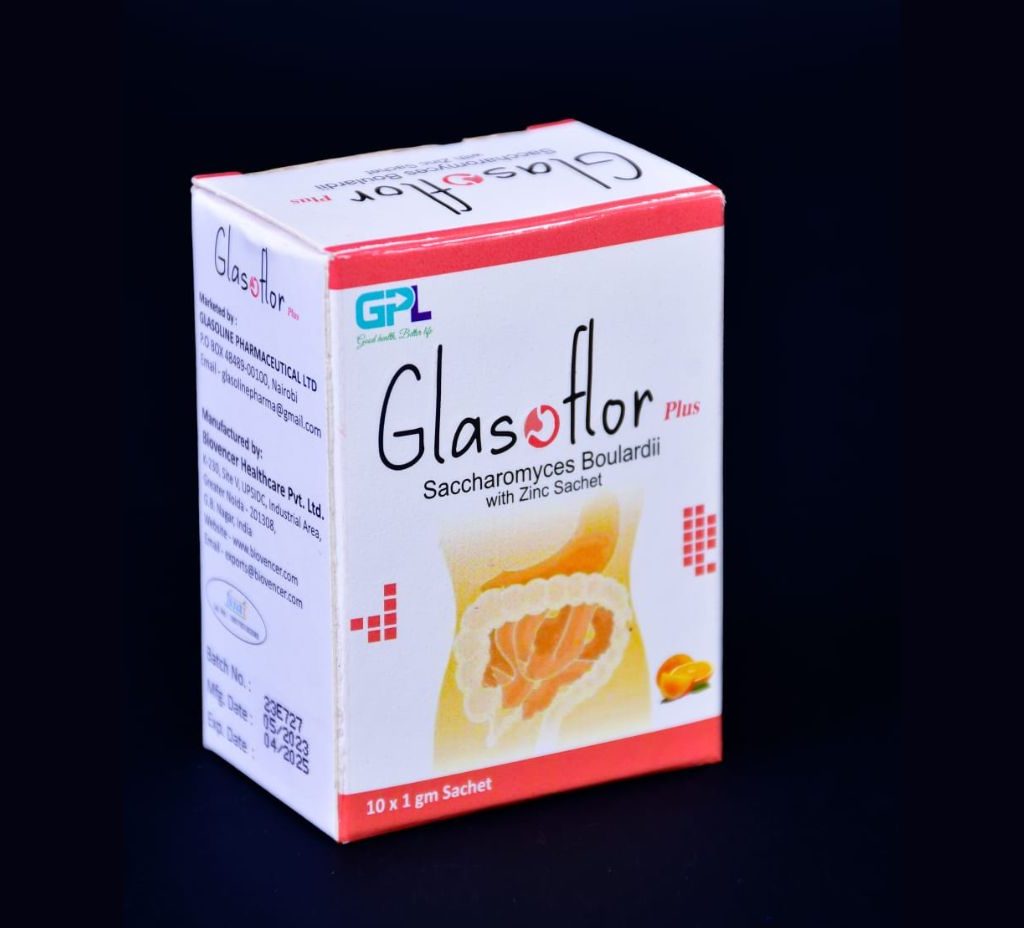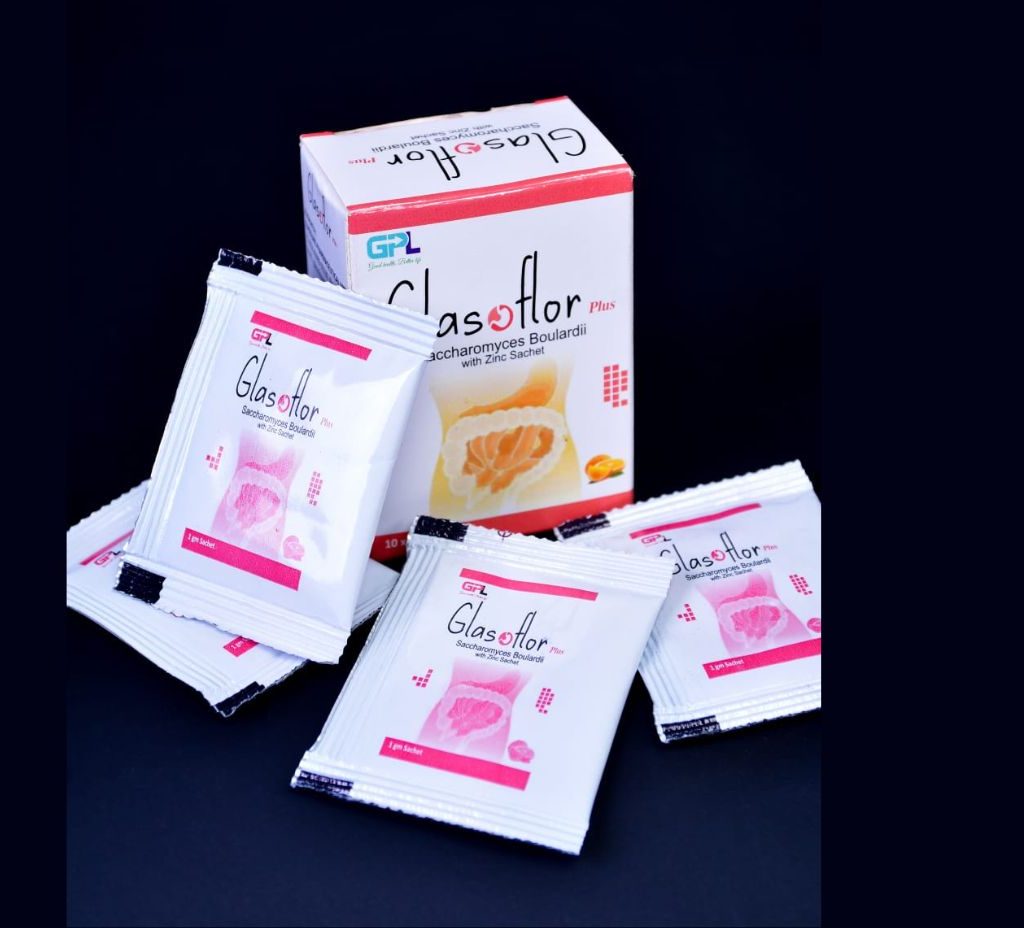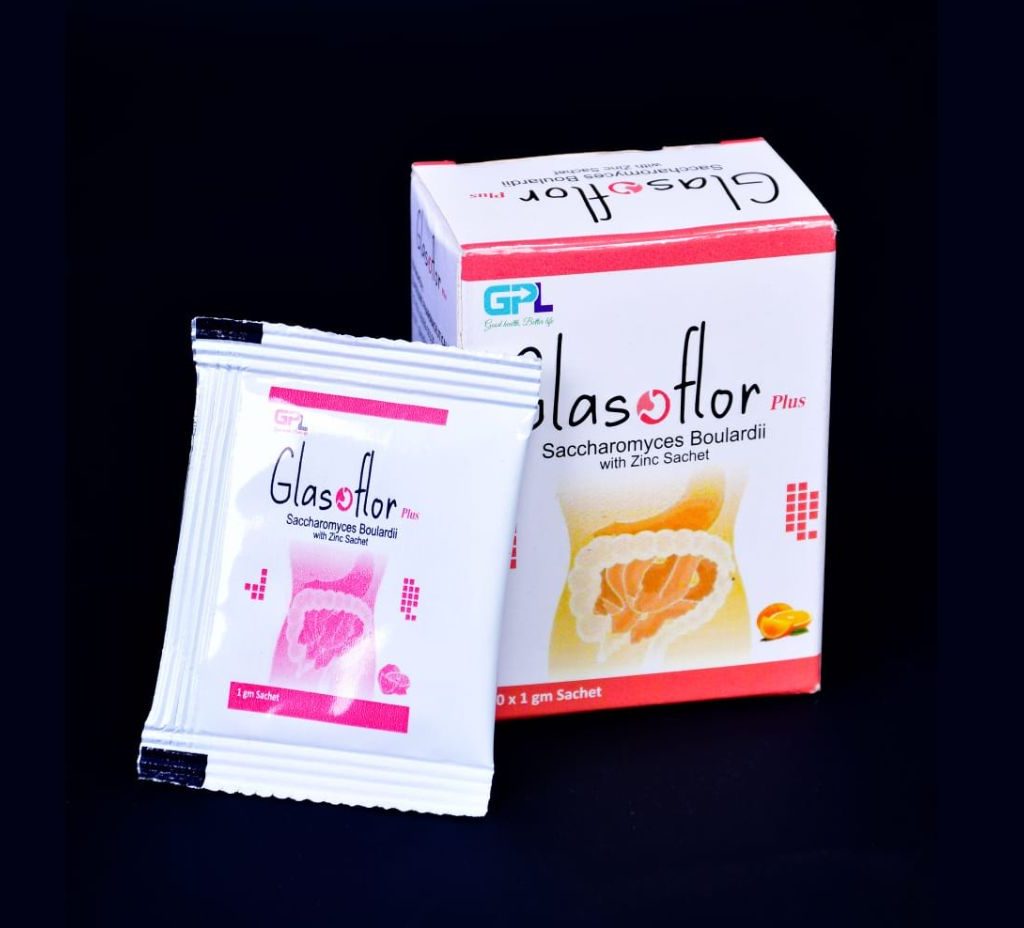


Saccharomyces boulardii is a live, non pathogenic yeast recommended as a probiotic and as a biotherapeutic in the treatment of diarrhoea of various etiology. Zinc is an essential mineral that is critical for the functioning of hundreds of enzymes, consequently it plays many roles including in brain function and the immune system.
Saccharomyces boulardii favourably alters the composition of gut flora and inhibits the action of pathogenic micro organisms. This yeast is known to produce lactic acid, hydrogen peroxide and acetic acid which lowers the PH of the small intestines thereby inhibiting reproduction of other pathogenic bacteria. It provides nutritional requirements for the body since its known to synthesize vitamin B1, B2, B6 and nicotinic acid. Saccharomyces boulardii produces bacteriocins which act as natural antibiotic killing harmful bacteria. Zinc can treat acute and chronic diarrhoea by inhibiting three out of the four intracellular pathways of intestinal ion secretion, including cydic adenosine monophosphate (cAMP), calcium and nitric acid.
- Diarrhoea – Acute and persistent, chronic and recurrent, diarrhoea associated with antibiotic use and travellers diarrhoea.
- Irritable Bowel Syndrome (IBS)
- Digestive complications after prolonged antibiotic therapy eg candiadiasis, colitis and diarrhoea.
- Prophylactic prevention of diarrhoea in patients under continuous enteral feeding
Children 1-12 yrs: 1 sachet orally once daily for 10-14 days or as directed by a physician Above 12 yrs: 1 to 2 sachets orally, daily for 10-14 days or as directed by a physician.
- Glasoffor plus should be mixed with water or beverage of choice
- Hot liquids and alcohol should not be used
- Glasoflor plus can be used with or without food
- Patients on continuous enteral feeding may add glasoflor plus to the nutrients solution at the time of preparation
- Systemic antifungal agents reduces the efficacy of Saccharomyces boulardii
- -Hypersensitivity to zinc
- No major side effects has been reported on the use of saccharomyces boulardii although occasionally some patients have shown an increase in digestive gas
- At recommended dose of zinc no side effects are observed, however large doses may cause nausea, vomiting, heart burns, abdominal pain, dyspepsia and gastric irritation
High doses of zinc are not recommended for patients with renal impairment and therefore dosage adjustment may be required.
Absorption of zinc may be reduced by iron supplements and tetracydine. Zinc supplements reduce absorption of floroquinolories, iron and tetracycine.
In acute overdosage, zinc salts are corrosive due to formation of zinc chloride which is treated by administration of milk or alkali carbonates.
- Store in a cool dry place below 30°C
- Each carton contains 10 sachets each weighing 1g
